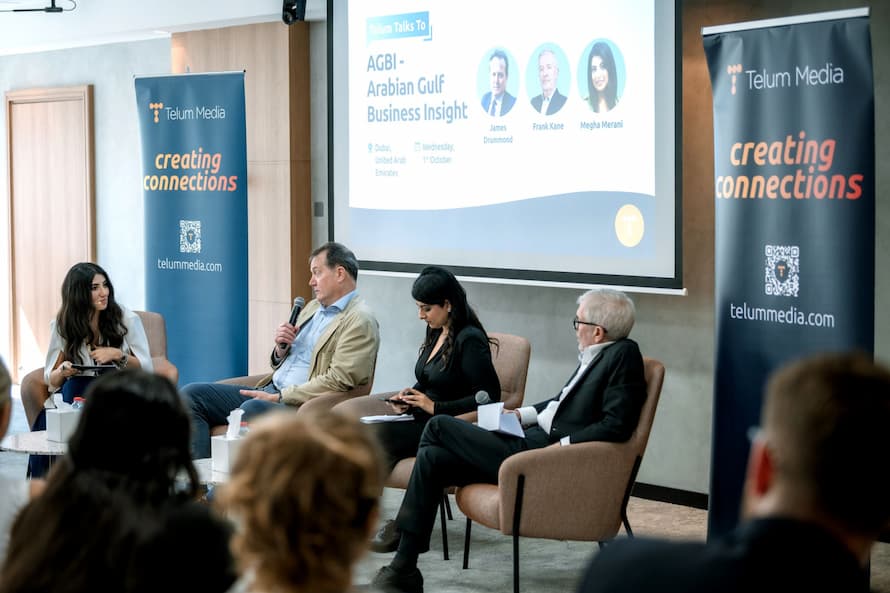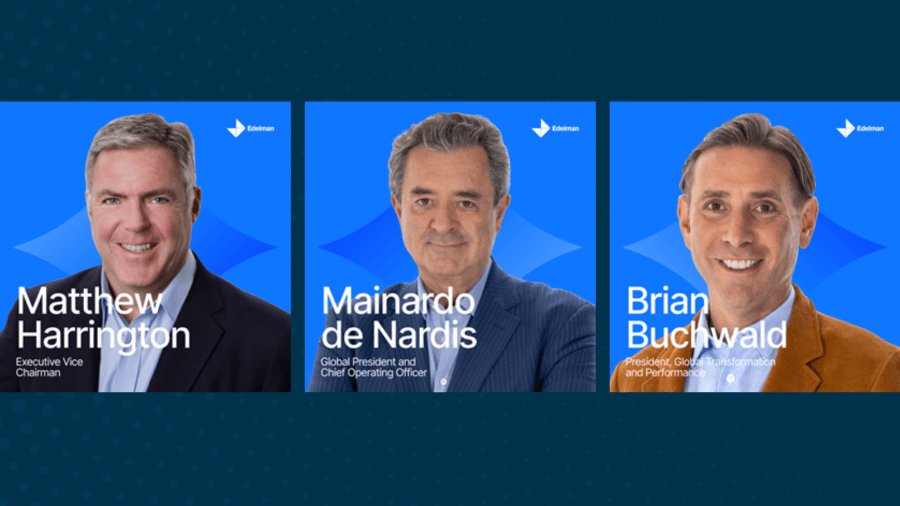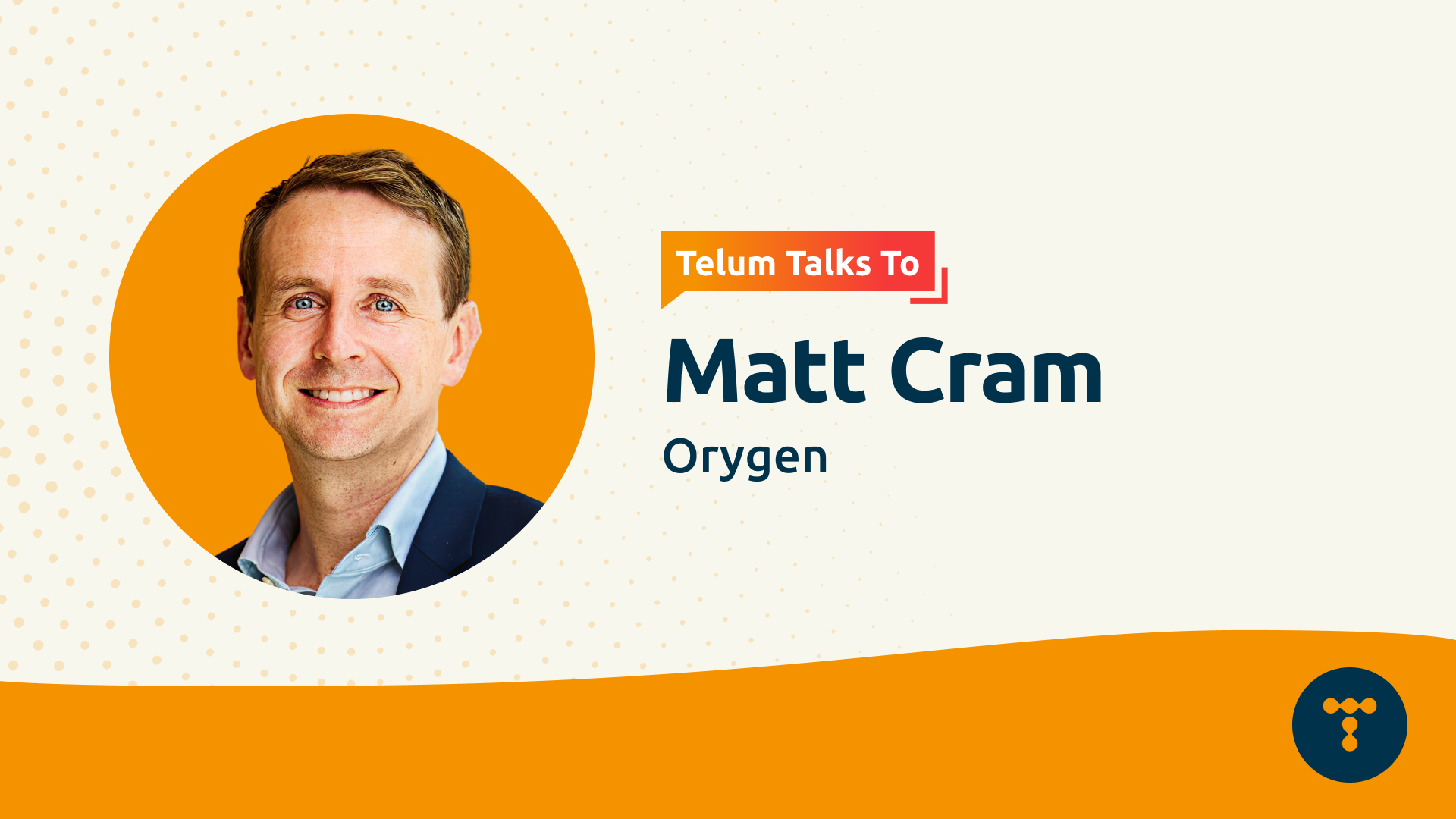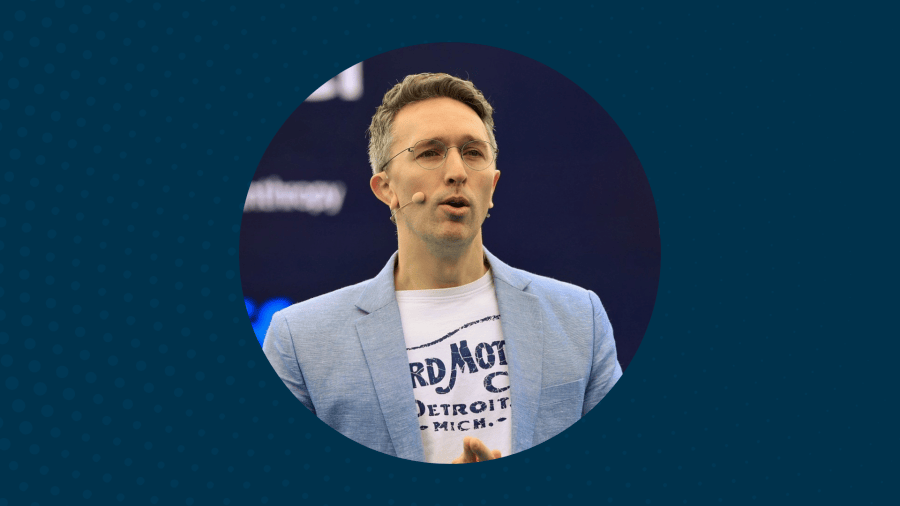Media relations platform, Telum Media has grown its team in the Middle East, appointing a Regional Media Manager and Senior Business Development Specialist in the United Arab Emirates (UAE).
Joanna Ezzat has joined the team in Telum’s Dubai Media City office as Regional Media Manager, Middle East, leading the local media team as they build connections with regional media outlets and journalists.
Joanna brings several years of experience in the media to the team, including over four years as a Broadcast Producer and Journalist with Middle East Broadcasting Center. Before joining Telum Media, she was a Producer and Journalist at MONIIFY.
Joanna also brings experience hosting events, and moderated Telum’s first media panel event in Dubai on 1st October, where more than 60 local PR and communications professionals gathered to gain insights from senior editorial staff at Arabian Gulf Business Insider (AGBI), including Editor-in-Chief James Drummond, Editor-at-Large Frank Kane, and Senior Editor Megha Merani. Joanna also emceed PRCA MENA’s annual conference last month.
Christian McKee, Telum Media’s Head of Media Operations, said: “Understanding the intricacies of the Middle East media landscape requires local expertise. Joanna brings in-depth local knowledge to our team of regional specialists on the ground in Dubai, offering insights that are crucial for successful media engagement. We are absolutely delighted to welcome her to the team.”
Asha Wadhwani has also joined the Telum Media team in Dubai, joining as Senior Business Development Specialist for the Middle East region.
Asha has amassed more than two decades of experience in sales, marketing and key account management in the GCC, and joined Telum after nearly five years as a Senior Account Director for eFinancialcareers.com in Dubai.
Telum Media Global Head of Sales, Martine Docking, said: “We’re delighted to welcome Asha to our growing team in Dubai. Her deep understanding of conducting business in the region and experience in software and technology sales is a tremendous asset.
“Asha has already started building strong relationships with PR and communications professionals across the region and is having a very positive impact.”
(Pictured: Telum's Joanna Ezzat moderates a candid "Telum Talks" discussion with the editorial leaders from AGBI)

Telum Media grows Middle East team
Telum Media creating connections
Get in touch to learn more
You might also enjoy
Edelman has made a series of senior leadership appointments as part of the firm’s strategic agenda. Matthew Harrington has been named Executive Vice Chairman, Mainardo de Nardis as Global President and Chief Operating Officer, and Brian Buchwald as President, Global Transformation and Performance.
A 41-year veteran of the firm, Matthew has held several key leadership roles, including U.S. CEO, and most recently served as Global President and Chief Operating Officer. In his new role as Executive Vice Chairman, he strengthens relationships with Edelman’s largest global clients, serving as senior counsellor to C-suites and boards.
Mainardo, who has served on Edelman’s board of directors for the past five years, brings decades of experience in global media and communications leadership. As Global President and COO, he drives client growth and financial performance, guiding global strategy, and ensuring consistency and excellence across Edelman’s worldwide network. His responsibilities include strengthening the firm’s operating model to support sustainable, profitable growth while enhancing Edelman’s cultural and industry impact.
Brian joined Edelman three years ago to help build out the firm’s suite of Trust products and services. He has since been elevated to Global Chair of Product and AI, and in his new role, he drives the firm’s modernisation of its service delivery model and operationalise its innovation agenda as Edelman escalates its integration of AI and technology.
“These leadership appointments mark an important new chapter for Edelman as we double down on innovation, global growth, and trust,” said Richard Edelman, CEO. “Each of these leaders brings unique strengths that will help us move forward in a rapidly changing communications landscape. Their focus will be on delivering greater impact for our clients, strengthening our internal operations, and driving the firm’s ongoing transformation and innovation.”
In today’s ‘always-on’ information economy, the use of AI tools in mental health conversations is becoming increasingly evident, influencing how healthcare communicators engage, educate, and advocate for wellbeing services.
Telum Media spoke to Matt Cram, Head of Media and Communications at youth mental health institute, Orygen, to explore how AI algorithms are affecting mental health narratives, shaping the value of traditional media, and being leveraged for more trusted, accessible, and impactful mental health discussions.
How is the 'always-on' information economy reshaping the way healthcare communicators approach mental health narratives?
In an always-on world, stories about anything, including health, can take off and change shape in minutes. That can be exciting, but it also raises the stakes. We need to keep accuracy and clarity front and centre, and move quickly without feeding misinformation. Balance is important - being responsive without losing responsibility and being agile, while keeping messaging clear and concise.
What hasn’t changed are the building blocks of good communication: case studies, lived experience stories, and strong evidence, these are still what resonate with audiences. If anything, they’re even more important now because they anchor our messages when conversations are moving so fast.
And while the information economy is always on, our brands don’t need to mimic that. This was one of the big lessons in my move from journalism to health communications. We need to be 'always on' in terms of listening and monitoring, but we don’t need to be constantly talking. If you try to fill every moment, you risk becoming part of the noise. Choosing when to show up - and making sure you actually add value when you do - is what keeps your voice trusted and impactful.
How is AI changing the role of earned, traditional, and regulated media in mental health communications - both in terms of amplifying their value and potentially undermining it?
Earned and traditional media still matter enormously. Many AI algorithms are trained on, or fuelled by, this content. When your message lands in a credible outlet, it’s not just reaching readers and viewers, it’s also feeding the machines that will repackage and serve that information to new audiences. All the more reason to make sure what you put out is accurate and on message.
At the same time, AI is blurring the line between what’s legitimate and what’s confected. That risk only makes trusted voices more valuable. When people are swimming in AI-generated noise, established, regulated media serve as touchstones of credibility.
On the flip side, AI has made the creation of strong digital content easier and more accessible than ever. That’s a warning shot to traditional media: if they don’t keep evolving their relevance and depth, they risk being bypassed by brands and organisations, who can now publish credible content directly to audiences.
And of course, it’s all moving so fast that some of what I’ve just said could be obsolete within a month - that’s how quickly the landscape is shifting.
As AI becomes more embedded in healthcare comms, particularly around mental health, what strategies have you adopted to preserve the human empathy and tone that are essential for building trust?
AI can be a useful support tool, but it can’t replace the way people connect through empathy, creativity, and lived experiences. When everything starts to sound the same, when outputs drift toward homogeneity, that’s exactly when distinctive human voices stand out most. The stories that cut through are the ones only a person could tell - with warmth, context, and care.
For me, it’s about using AI in the background rather than the foreground. It can help with brainstorming and sense-checking, but there’s always a human review before anything goes out - especially in mental health, where tone and nuance really matter.
And the other piece is making sure lived experience is central in your messaging. That’s not something you can outsource to an algorithm. The empathy and authenticity that come from people sharing their realities are irreplaceable and keep trust at the heart of all communications - from the PR to the mental health training and resources our organisation delivers for young people, parents, and clinicians.
What practical strategies can healthcare communicators use to influence generative AI and search to ensure that credibility, accuracy, and public interest are prioritised?
One of the biggest things we’ve learned is that AI doesn’t just surface information, it consumes it. That means the way we structure and present content really matters.
Using plain language, clear evidence, and formats that AI can easily ingest helps ensure reliable information is what gets pulled through. In the Orygen communications team, we talk about ‘telling the internet who we are’. Every digital publishing opportunity adds to our footprint, so we find as many as we can and treat each one in a deliberate and unified fashion - another chance to show a consistent, credible brand.
Partnerships are just as important. Working with regulators, researchers, and health organisations makes it more likely that credible, well-sourced material is not only published but also picked up and prioritised. It strengthens both the signal and the source.
But again, if I read like I’ve got all the answers, I don’t. We’re all constantly learning here. The way AI and search behave is shifting so quickly that the best strategies today might look very different tomorrow, and that’s why one of the important tasks for communicators in 2025 is to constantly stay abreast of the latest trends and news in this space.
There’s truth in this saying: “AI isn’t coming for everyone’s job, it’s coming for the jobs of people who don’t know how to use AI.”
Ford Motor Company has named Matt Moran as Director, ASEAN Communications & IMG Product Communications. Relocating to Bangkok from Australia, he now leads Ford's ASEAN Communications teams across Thailand, Vietnam, the Philippines, South Korea and Asia Pacific distributor markets, as well as product communications across the rest of the International Markets Group, which also includes Australia, New Zealand, the Middle East and Africa.
With more than 15 years of industry experience, Matt most recently served as Communications Director, Australia and New Zealand at Ford Motor Company in Australia.


